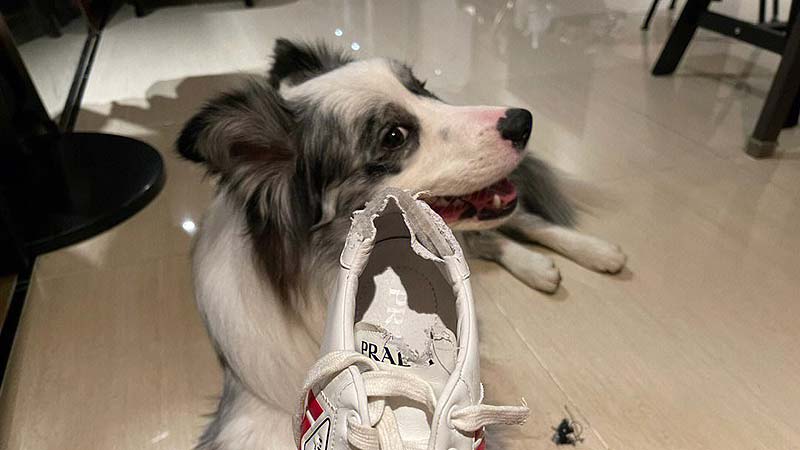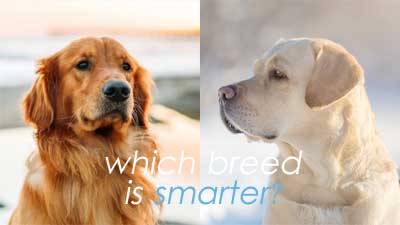- Size
- Smallest
- Small
- Small to Medium
- Medium
- Large
- Giant
- Characteristics
- Smartest
- Hypoallergenic
- Fluffy
- Best Guard
- Best Family
- Best for Kids
- Low Shedding
- Healthiest
- Police Dogs
- Most Calm
- Quietest
- Color
- White
- Black
- Grey
- Brown
- Blue
- Red
- Coat
- Hairless
- Short
- Long
- Origin
- Japan
- China
- Australia
- Germany
- Italy
- United States
- France
- Group
- Hound
- Terrier
- Herding
- Toy
- Working
- Sporting
Understanding Dog Chewing: Causes and Solutions

While dogs bring immense joy and companionship to our lives, their natural inclination to chew can sometimes result in a few household mishaps. Chewing is an intrinsic behavior in dogs, rooted in their instincts and developmental stages. Understanding the reasons behind their chewing tendencies and employing proactive measures can significantly mitigate potential destructive behaviors.
The Nature of Chewing in Dogs
Chewing is a quintessential behavior for canines, encompassing various purposes and stages throughout their lives. It's crucial to recognize that chewing is not merely a behavioral quirk; instead, it's a manifestation of their inherent nature and needs. Puppies, in particular, engage in chewing for several reasons, which often continue into adulthood.
Understanding the Triggers
1. Puppy Teething
One of the primary reasons behind excessive chewing in dogs is the teething phase. Just like human babies, puppies experience discomfort and itching as their adult teeth start to emerge. Chewing becomes an instinctive coping mechanism to alleviate the discomfort and facilitate the transition from puppy teeth to adult teeth.
2. Boredom or Excess Energy
Dogs are inherently active creatures. When their physical and mental stimulation needs aren't met, they may resort to chewing out of boredom or pent-up energy. In such cases, chewing becomes an outlet for expending surplus energy and alleviating the monotony of their environment.
3. Anxiety
Anxiety can manifest in various ways in dogs, and one common outlet is through excessive chewing. Dogs experiencing separation anxiety or other forms of stress may resort to chewing as a way to soothe themselves or alleviate their distress.
4. Curiosity
Puppies, in their exploratory phase, tend to use their mouths to understand the world around them. This curiosity-driven chewing is part of their learning process but can sometimes lead to unintended destruction.
Managing Chewing Behavior
Providing Appropriate Chew Toys
Offering a variety of suitable chew toys is paramount in redirecting a dog's chewing tendencies. Opt for toys designed specifically for chewing, considering their size, texture, and durability. These toys not only satiate their chewing instincts but also aid in maintaining dental health and alleviating teething discomfort.
Limiting Access to Personal Items
Prevention is key when it comes to preserving household items from a dog's curious teeth. Keep personal belongings out of a dog's reach, especially during the teething phase or when they exhibit signs of excessive chewing.
Implementing Distraction Techniques
When caught in the act of inappropriate chewing, swiftly redirect your dog's attention with a sharp noise or verbal cue. Replace the forbidden item with an appropriate chew toy to reinforce positive chewing habits.
Ensuring Adequate Exercise
Regular physical exercise is pivotal in addressing the underlying causes of excessive chewing. Engage your dog in stimulating activities, walks, or play sessions to expend their energy and reduce the likelihood of destructive chewing out of boredom or excess energy.
Conclusion
Chewing is an inherent part of a dog's behavior, influenced by various factors ranging from teething to boredom and anxiety. Understanding the underlying triggers and implementing proactive measures can significantly mitigate destructive chewing behaviors. By providing appropriate chew toys, limiting access to personal items, employing distraction techniques, and ensuring adequate exercise, pet owners can effectively manage and redirect their dog's natural inclination to chew, fostering a harmonious coexistence within the household.
You May Also Like
 Help & AdviceThe 6 Benefits of Chew Toys for Dogs
Help & AdviceThe 6 Benefits of Chew Toys for Dogs Dog Toys & Puppy ToysThe 5 Best Puzzle Toys For Large Dogs (2022)
Dog Toys & Puppy ToysThe 5 Best Puzzle Toys For Large Dogs (2022) Breed ComparisonThe Labrador vs. Golden Retriever Debate: Who's Really Smarter?
Breed ComparisonThe Labrador vs. Golden Retriever Debate: Who's Really Smarter? Help & AdviceHow To Keep Your Young Puppy From Eating Toys
Help & AdviceHow To Keep Your Young Puppy From Eating Toys Dog Toys & Puppy Toys7 Best Chew Toys For Lab Puppies (2022)
Dog Toys & Puppy Toys7 Best Chew Toys For Lab Puppies (2022) Breed ReviewsWhat is the Rarest Husky Eye Color?
Breed ReviewsWhat is the Rarest Husky Eye Color?